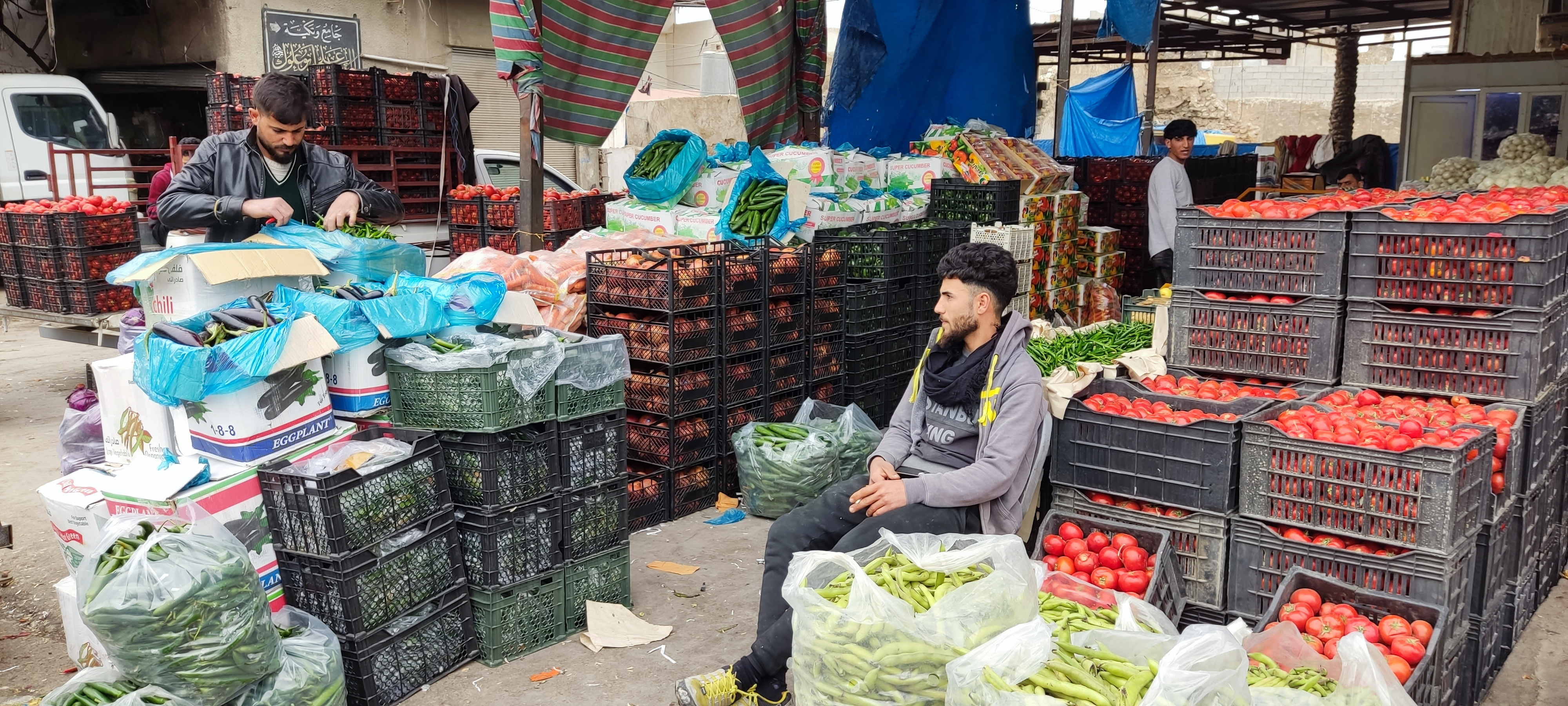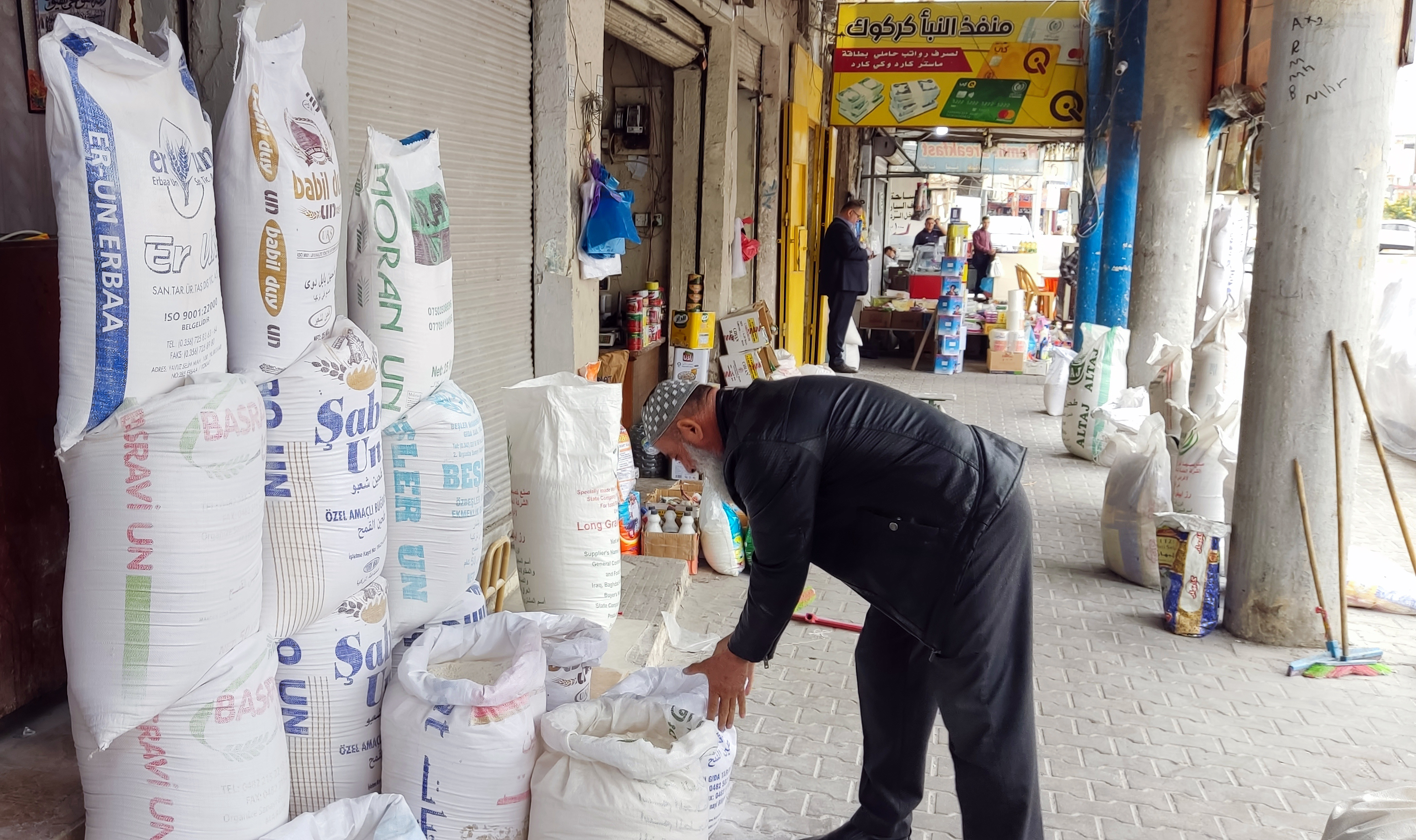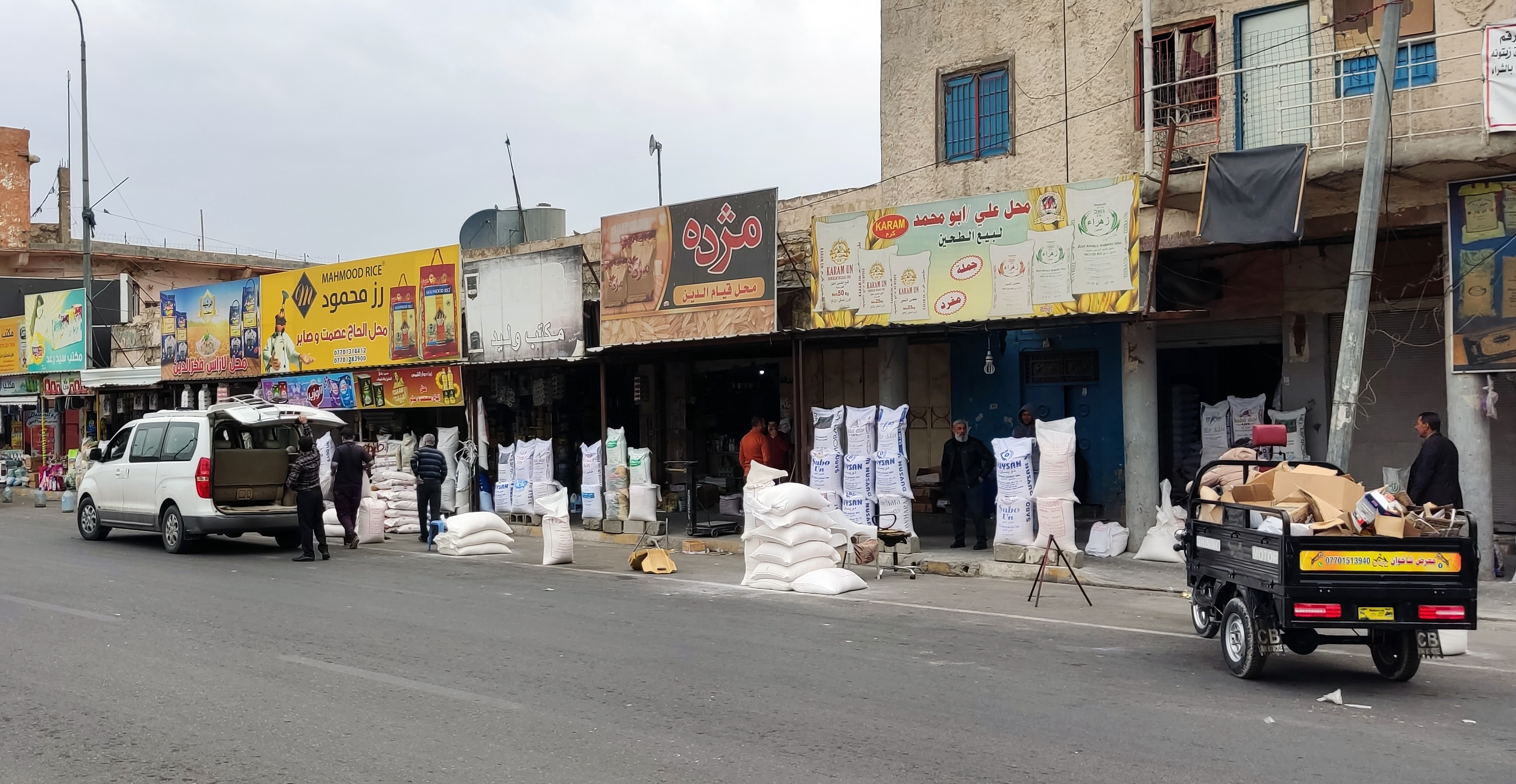The prices of foodstuffs, vegetables and fruits in the markets are witnessing a state of instability, which is often high, provoking resentment and discontent of the citizens, in the absence of supervision and the lack of accountability for those responsible for the wave of prices.
According to KirkukNow follow-up, the prices of most food commodities, vegetables and fruits have increased at varying rates since the beginning of the month of Ramadan.
“Food prices are going up day after day. When you ask any shop owner to answer you that the reason is the high exchange rate of the dollar, it has become difficult to buy vegetables and fruits because of the high prices,” says Ahang Ali, a 43-years-old civil servant from Kirkuk.
The price of a 20-pack of cooking oil carton during Ramadan reached 95 thousand Iraqi dinars IQD ($63), then dropped to 65 IQD, while it was previously sold for 48 thousand dinars.
Food prices are going up day after day
A bag of Turkish flour weighing 50 kilograms was sold for 39,000 IQD, but its price in Ramadan reached 49,000 dinars, and a bag of sugar weighing 25 kilograms increased by 10,000 dinars.
The prices of some foodstuffs have increased before Ramadan, especially cooking oil and flour, an aftermath of Russia invasion of Ukraine, according to the Iraqi government.
In order to limit the consequences of the global demand on food, the Border Ports Authority of Iraq has opened all border points for the import of foodstuffs due to the high demands.
Besides, the Iraqi government allocates big budget for the ministry of trade to supply each Iraqi family with a proper food basket each month as Iraq has turned into a food importing country following successive wars yet corruption has plagued this sector alike other public sectors in Iraq following ousting of Saddam Hussein regime in 2003.
Iraq depends mainly on oil revenues for national budget and spends the big part of it for payment of salaries for state employees and export of foodstuff.
To avoid severe budget deficits, the Iraqi government has dictated central bank of Iraq CBI based on recommendations by the ministry of finance to devaluate USD-IQD exchange rate from 1250 to 1450 in December 2020 for the budget of 2021, a matter frustrated the civil servants who accordingly lost 20% of their income.

Maliha Muhammad, a woman with special needs, rents out a small shop selling daily consumables inside her house. She expressed her dissatisfaction with the rise in prices and attributed part of the price hike to the increase in citizens' demand to buy food commodities during the month of Ramadan.
The increase in prices is not only for imported goods, but also for local products.
Jalil Adham, a seller of vegetables and fruits in the Panja Ali market, said, "The prices of vegetables and fruits vary according to regions, the prices are generally high,” for example, a kilo of eggplant was previously sold for 750 dinars, but now its price has reached 1,500 dinars, Meanwhile, the price of a kilo of garlic increased from 500 dinars to a thousand dinars.
The prices of most other vegetables increased by 500 dinars.
"We blame the traders and importers, and they attribute this to the taxes and royalties that are imposed on them at the checkpoints and the increase in trucking prices," Adham said.
We blame the traders and importers, and they attribute this to the taxes and royalties
KirkukNow published in a previous follow-up that “royalties” are taken from drivers of vehicles loaded with foodstuffs and other goods “randomly without official receipts” at the main checkpoints in Kirkuk, although the goods were previously subject to customs duties, but some of them fall within the prohibited goods which are imported illegally.
"The government is the reason for the high prices of some materials, because the checkpoints do not allow their entry on the pretext that they are prohibited and also to encourage local production, but these goods are then smuggled into Kirkuk and sold at higher prices, which leads to an increase in the prices of the local product as well," explained Waad Saad, a food trader in Kirkuk.
Waad says that the prices of food commodities and household needs rise every year in Ramadan, "but the prices did not reach what they did in the current Ramadan, and part of that rise may be related to the continuation of the war between Russia and Ukraine."
Before the month of Ramadan, the provincial administration of Kirkuk decided to tighten control over the markets and warned against exposing merchants who raise the prices of goods without reason to legal accountability.

Hawry Zangana, the official of the Kirkuk mayor’s committees responsible for monitoring the markets, told (KirkukNow), “Any shop owner who raises the prices of goods will be punished by law, and penalties sometimes reach imprisonment so we are following up on the market to prevent price increases.”
According to KirkukNow follow-up, no merchant or shop owner has so far been subjected to legal accountability for raising prices.
"In general, prices go up during the month of Ramadan because citizens buy food commodities in large quantities at the beginning of the month for fear that they will run out, but that does not take more than a week, after Ramadan the prices drop down again," Zangana added.
The Market Control Committee works in coordination with the municipality and the provincial police.
Deputy Director of the Kirkuk Chamber of Commerce, Omar Mamo, beleives, "The steps taken by the Iraqi government help to limit the rise in prices, by allocating this year's budget to support food security and distributing two food rations to citizens during the month of Ramadan."
The oil rich-city of Kirkuk, is an ethnically mixed province for 1.7 million Kurds, Sunni and Shiite Arabs, and Turkmen. It has long been at the center of disputed territories between Baghdad and Erbil.
Kirkuk, located 238 kilometers north of Baghdad, has vast agricultural lands and consists of four districts.





